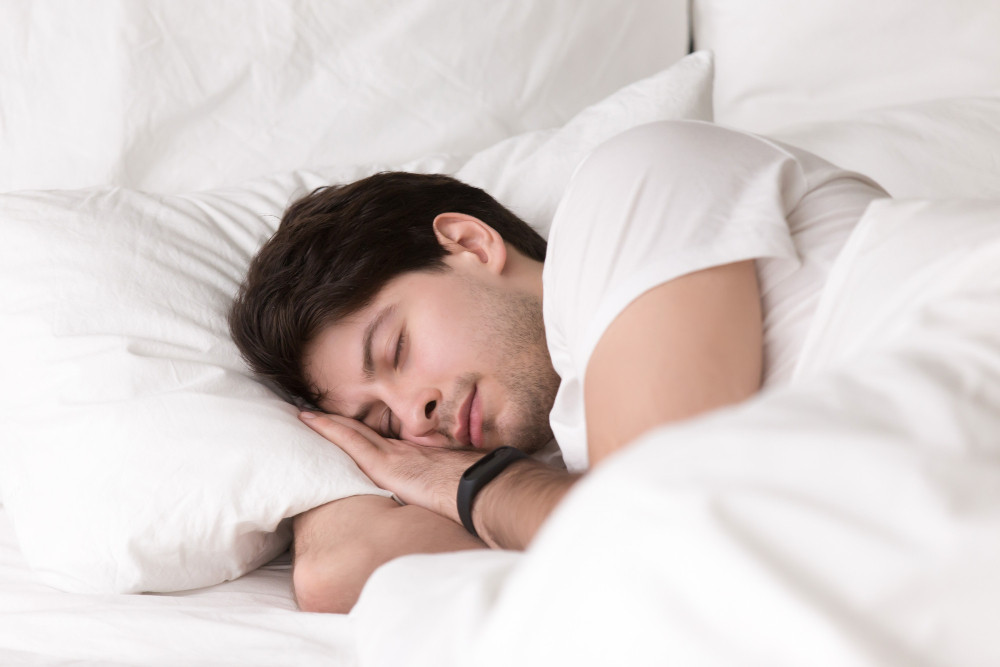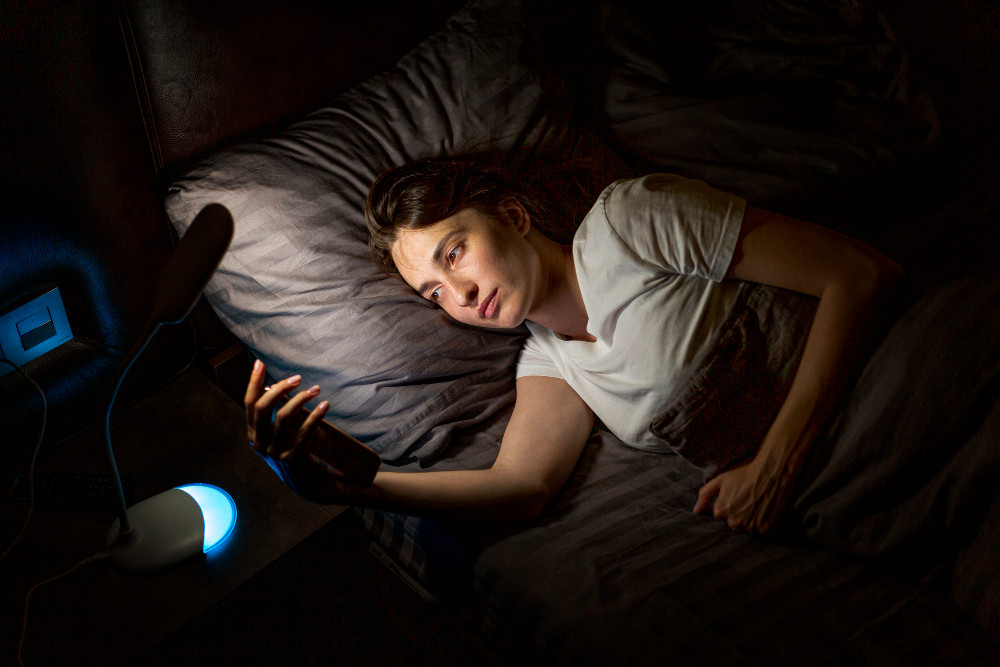Ritme sirkadian termasuk jam internal biologis yang dimiliki oleh tubuh manusia. Sangat penting menjaga ritme sirkadian tetap berfungsi dengan baik karena ritme sirkadian mengatur berbagai proses fisiologis termasuk siklus tidur bangun, produksi hormon, metabolisme tubuh dan fungsi sistem saraf.
Di dalam artikel ini, akan lebih banyak dibahas hubungan antara ritme sirkadian dan pengaruhnya pada siklus tidur-bangun.
Apa itu Ritme Sirkadian
Ritme sirkadian didefinisikan sebagai pola ritmis dalam proses biologis yang terjadi pada tubuh manusia. Pola ini mengikuti siklus 24 jam.
Di otak kita, terdapat kelompok sel-sel saraf yang membentuk jam biologis internal. Jam biologis inilah yang mengatur siklus sirkadian.
Faktor lingkungan eksternal, terutama cahaya, memainkan peran penting dalam mengatur ritme sirkadian. Paparan cahaya, terutama cahaya biru, merangsang jam biologis internal. Saat ada cahaya matahari di pagi hari, Anda akan tetap terjaga dan bangun. Sebaliknya, saat cahaya berkurang di malam hari, maka akan merangsang produksi hormon melatonin dan membuat Anda mengantuk.
Selain siklus tidur-bangun, ritme sirkadian juga mengatur berbagai fungsi penting tubuh lainnya, termasuk suhu tubuh, metabolisme, pencernaan, dan rasa lapar. Saat ritme sirkadian terganggu atau mengalami kekacauan, Anda akan mengalami banyak masalah kesehatan seperti gangguan tidur, masalah kesehatan mental, gangguan hormonal, masalah kesehatan fisik, serta gangguan kinerja dan produktivitas.
Baca Juga: 5 Tips Untuk Meningkatkan Kualitas Tidur
Pengaruh Ritme Sirkadian dengan Siklus Tidur-Bangun
Ritme sirkadian memainkan peran penting dalam siklus tidur bangun. Paparan cahaya pada siang hari, mengirimkan sinyal ke jam biologis untuk meningkatkan kewaspadaan dan memperlambat produksi melatonin. Ini membuat Anda tetap terjaga dan aktif selama siang hari, dan memungkinkan Anda menjalani aktivitas sehari-hari.
Kemudian, saat malam hari tiba, cahaya akan mulai redup. Saat inilah jam biologis memerintahkan tubuh untuk memproduksi lebih banyak melatonin. Melatonin adalah hormon yang membantu menimbulkan rasa kantuk dan mempersiapkan tubuh untuk tidur.
Ritme sirkadian membantu menyelaraskan waktu tidur dan terjaga sehingga sesuai dengan pola siang dan malam hari. Ini menciptakan siklus tidur yang teratur yang penting untuk kualitas tidur yang nyenyak dan pemulihan fisik serta mental.
Baca Juga: Cara Agar Bisa Tidur Teratur di Malam Hari
Hal-Hal yang Dapat Mengganggu Ritme Sirkadian
Ritme sirkadian Anda mungkin terganggu akibat beberapa faktor, di antaranya:
Jet lag
Perjalanan lintas zona waktu dalam waktu singkat dapat mengacaukan ritme sirkadian Anda. Perubahan tiba-tiba dalam paparan cahaya dapat membuat tubuh kesulitan menyesuaikan diri dengan siklus siang-malam di lokasi baru sehingga menyebabkan masalah tidur dan kelelahan.
Kerja shift
Orang yang bekerja shift, khususnya shift malam, menghadapi tantangan besar dalam menjaga ritme sirkadian. Perubahan jadwal kerja yang signifikan dapat meningkatkan risiko gangguan tidur dan masalah kesehatan lainnya.
Gangguan tidur
Gangguan tidur tertentu seperti sindrom fase tidur bangun yang tertunda dapat menghasilkan pola tidur yang kurang baik, seperti tidur terlalu larut malam dan bangun terlalu pagi.
Masalah fisiologis dan genetik
Beberapa gangguan ritme sirkadian berasal dari masalah fisiologis dan genetik yang mendasari, misalnya perubahan hormonal atau gangguan neurologis.
Gangguan lingkungan
Faktor lingkungan tertentu seperti paparan cahaya biru dari televisi, ponsel, atau komputer dapat mengganggu ritme sirkadian dan memengaruhi kualitas tidur. Mereka yang masih menggunakan gawai mendekati jam tidur biasanya berakhir dengan kesulitan tidur dan tidur lebih malam.
Kondisi psikologis
Beberapa kondisi psikologis seperti kecemasan, depresi, dan stres kronis, juga dapat memengaruhi ritme sirkadian seseorang. Ketidakseimbangan hormonal yang terjadi akibat kondisi ini dapat mengganggu kualitas dan pola tidur.
Kondisi neurologis
Gangguan neurologis seperti demensia atau cedera otak traumatis juga dapat menyebabkan gangguan ritme sirkadian. Gangguan neurologis ini dapat mengganggu fungsi jam biologis dan menyebabkan ketidakseimbangan dalam siklus tidur bangun.
Sangat penting untuk mengetahui apa saja yang dapat memengaruhi dan mengganggu ritme sirkadian Anda sehingga Anda dapat mengambil langkah-langkah untuk mengatasinya. Apabila Anda mengalami gangguan tidur seperti insomnia atau kecemasan sebelum tidur, sebaiknya konsultasikan kondisi Anda dengan dokter. Anda juga bisa memanfaatkan layanan konsultasi kesehatan dengan mengunduh aplikasi Ai Care melalui App Store atau Play Store.
Mau tahu informasi seputar penyakit lainnya? Cek di sini, ya!
- dr. Monica Salim
Cleveland Clinic (2024). Circadian Rhythm Sleep Disorders. Available from: https://my.clevelandclinic.org/health/diseases/12115-circadian-rhythm-disorders
Eric Suni (2023). Circadian Rhythm. Available from: https://www.sleepfoundation.org/circadian-rhythm
Lawrence Epstein, MD (2020). Why do your sleep and wake cycles affect your mood? Available from: https://www.health.harvard.edu/blog/why-your-sleep-and-wake-cycles-affect-your-mood-2020051319792
Sujana Reddy, et al. (2023). Physiology, Circadian Rhythm. Available from: https://www.ncbi.nlm.nih.gov/books/NBK519507
National Center for Complementary and Integrative Health (2022). Melatonin: What You Need to Know. Available from: https://www.nccih.nih.gov/health/melatonin-what-you-need-to-know
Stanford Medicine. Advanced Sleep Phase Syndrome. Available from: https://stanfordhealthcare.org/medical-conditions/sleep/advanced-sleep-phase-syndrome.html











